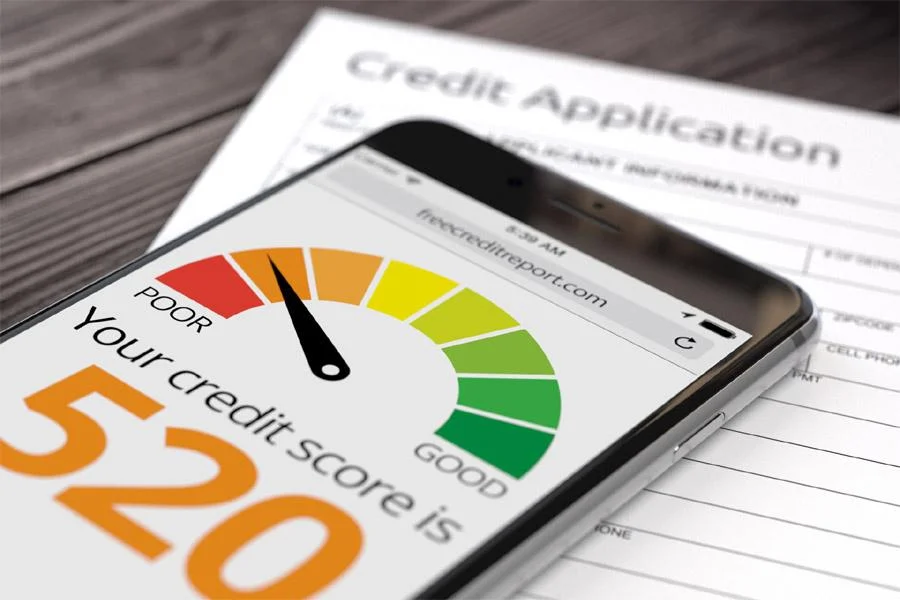
Navigating Instant Personal Loans with Bad Credit in California, United States
July 10, 2024
Comparing LendingClub and FinzExpert: Which Loan Company is Right for You?
July 12, 2024Introduction to Debt Consolidation
Debt consolidation is a financial strategy aimed at simplifying and managing multiple debts by combining them into a single loan. This approach can be particularly beneficial for individuals juggling various loans with different interest rates and payment schedules. By consolidating these debts, you can streamline your financial obligations into one manageable monthly payment, which often comes with a lower interest rate.
The primary advantage of debt consolidation lies in its ability to reduce the overall cost of borrowing. When you take out a personal loan for debt consolidation, you may be able to secure a lower interest rate compared to the rates on your existing debts. This can result in significant savings over time. Additionally, having a single payment each month can reduce the likelihood of missing payments and incurring late fees, further improving your financial health.
There are several methods of debt consolidation, each with its own set of benefits and drawbacks. The most common approaches include balance transfer credit cards, home equity loans, and personal loans. Among these, personal loans for debt consolidation are often favored due to their simplicity and accessibility. Unlike balance transfer credit cards, which may offer an introductory low interest rate that eventually increases, personal loans typically have fixed interest rates, providing consistency in repayment terms.
Personal loans for debt consolidation are unsecured loans, meaning they do not require collateral. This makes them an attractive option for those who may not have significant assets to offer as security. The application process for a personal loan is straightforward, and if approved, the funds can be used to pay off high-interest debts, thereby consolidating them into one loan with a predictable repayment schedule.
In summary, debt consolidation through personal loans can be a practical and effective way to manage and reduce debt. By understanding the various methods available and choosing the one that best suits your financial situation, you can take a significant step towards achieving financial stability.
How Personal Loans for Debt Consolidation Work
Personal loans for debt consolidation serve as a strategic financial tool to manage and streamline multiple debt obligations into a single, manageable loan. The process begins with the application phase, where the borrower submits necessary documentation such as proof of income, credit history, and personal identification to the lender. This phase is crucial as the lender assesses the borrower’s creditworthiness and ability to repay the loan.
Once the application is approved, the borrower is offered a loan with specific terms and conditions. These terms typically include the interest rate, repayment schedule, loan amount, and any associated fees. It is imperative for the borrower to thoroughly understand these terms before proceeding, as they will dictate the overall cost and duration of the loan. The interest rate, in particular, plays a significant role in determining the affordability of the loan over time.
After accepting the loan offer, the borrower receives the funds, which are then used to pay off existing debts. This consolidation process effectively merges multiple debt payments into a single monthly payment, often at a lower interest rate. The primary benefit of using personal loans for debt consolidation is the potential reduction in the total interest paid over time, thereby making debt management more straightforward and less stressful.
Understanding the repayment schedule is another critical aspect. The borrower must adhere to the agreed-upon repayment terms to avoid additional fees or penalties. Timely payments not only help in paying off the loan efficiently but also positively impact the borrower’s credit score.
In essence, personal loans for debt consolidation can simplify debt management by consolidating various debts into one loan with more favorable terms. However, borrowers must be diligent in reviewing loan agreements and ensuring that they are financially capable of meeting the repayment obligations.
Benefits of Using Personal Loans for Debt Consolidation
Opting for personal loans for debt consolidation offers several compelling advantages. One of the primary benefits is the potential for lower interest rates compared to credit cards. Credit cards often come with high-interest rates, which can escalate the total debt over time. Personal loans, on the other hand, typically offer lower and fixed interest rates, making the repayment process more manageable. For instance, if an individual has multiple credit card debts with interest rates hovering around 20%, consolidating these debts into a personal loan with a 10% interest rate can result in significant savings.
Another noteworthy advantage is the predictability of fixed monthly payments. Personal loans come with fixed terms and payment schedules, allowing borrowers to budget more effectively. Unlike the fluctuating minimum payments of credit card debt, a personal loan’s fixed payments provide clarity and stability, which can be crucial for financial planning. This structure helps in avoiding the uncertainty and stress associated with variable payments, thereby making debt management simpler and more straightforward.
Simplified debt management is another key benefit. Juggling multiple debt accounts can be overwhelming and increases the likelihood of missed payments. Consolidating these debts into a single personal loan streamlines the process, as borrowers need to keep track of only one monthly payment. This reduction in complexity can alleviate stress and reduce the administrative burden, ultimately leading to more consistent and timely payments.
Furthermore, using personal loans for debt consolidation can potentially improve one’s credit score. When multiple high-interest debts are consolidated into a single loan, the credit utilization ratio can decrease, positively impacting credit scores. Additionally, consistent and timely payments on the personal loan can contribute to a better credit history. For example, a person consolidating $10,000 of credit card debt into a personal loan and then making regular payments can see a noticeable improvement in their credit score over time.
Real-life examples underline these benefits. Consider Jane, who had $15,000 in credit card debt with an average interest rate of 18%. By consolidating her debts into a personal loan with a 9% interest rate, Jane reduced her monthly payments and paid off her debt faster, all while boosting her credit score. Such experiences highlight the practical advantages of using personal loans for debt consolidation.
Eligibility Criteria and Application Process
Obtaining a personal loan for debt consolidation requires meeting specific eligibility criteria set by lenders. One of the foremost considerations is the applicant’s credit score. Typically, a good to excellent credit score is preferred, often falling within the range of 670 to 850. A higher credit score generally increases the likelihood of loan approval and may result in more favorable terms, such as lower interest rates.
In addition to credit score, income verification is a crucial factor. Lenders usually require proof of a steady income to ensure the borrower has the financial capacity to repay the loan. This can be demonstrated through recent pay stubs, tax returns, or bank statements. Employment history is also scrutinized, with a stable work record being advantageous. Lenders may seek assurance that the applicant has been employed for a reasonable period, typically at least two years with the current employer or within the same industry.
The application process for a personal loan for debt consolidation involves several steps. Initially, prospective borrowers should gather all necessary documentation. This often includes identification proof such as a driver’s license or passport, income verification documents, and details of existing debts. Having these documents ready can expedite the application process.
Once documentation is prepared, the next step is to complete the loan application form. This can usually be done online or in person at the lender’s office. Applicants must provide accurate and up-to-date information to avoid delays. After the application is submitted, the lender will review the provided information and may conduct a credit check. This evaluation process can take anywhere from a few hours to several days, depending on the lender.
To increase the chances of approval, applicants should ensure their credit score is in good standing. Paying off smaller debts, disputing inaccuracies on credit reports, and reducing credit card balances can positively impact the credit score. Additionally, presenting a clear and feasible repayment plan can demonstrate financial responsibility to lenders.
Comparing Lenders and Loan Options
When considering personal loans for debt consolidation, it is crucial to thoroughly compare different lenders and loan options to ensure you make an informed decision. Several key factors should be evaluated to identify the most suitable loan for your needs.
Firstly, interest rates are a primary consideration. Interest rates can significantly impact the overall cost of the loan. Fixed interest rates provide stability with predictable monthly payments, while variable rates might offer lower initial rates but can fluctuate over time. Comparing the Annual Percentage Rate (APR) across lenders can give you a clearer picture of the total cost, including any fees.
Fees are another essential aspect to consider. Origination fees, prepayment penalties, and late payment fees can add up, making a seemingly low-interest loan more expensive. Ensure you understand all associated costs before committing to a loan.
Loan terms also play a significant role in your decision. Loan terms refer to the length of time you have to repay the loan. Shorter terms typically have higher monthly payments but lower overall interest costs, whereas longer terms offer lower monthly payments but may result in paying more interest over time. Choose a term that aligns with your financial goals and repayment capacity.
Customer reviews and ratings can offer valuable insights into a lender’s reliability and customer service. Reading reviews can highlight potential issues and advantages that may not be apparent from the lender’s promotional materials. Look for patterns in feedback to assess the lender’s reputation.
Utilizing comparison websites can simplify the research process. These platforms aggregate information from various lenders, allowing you to compare interest rates, fees, and terms side by side. They can also feature user reviews and ratings, providing a comprehensive overview of your options.
Consulting a financial advisor can provide personalized guidance tailored to your financial situation. Advisors can help you understand the implications of different loan options and assist in selecting a loan that best suits your debt consolidation needs.
By methodically comparing lenders and loan options, you can secure a personal loan for debt consolidation that optimizes your financial health and supports your journey towards debt freedom.
Potential Risks and Drawbacks
While personal loans for debt consolidation can offer substantial benefits, it is essential to be aware of the potential risks and drawbacks associated with them. One of the significant concerns is the presence of high fees. Many lenders charge origination fees, which can range from 1% to 8% of the loan amount. These fees can significantly increase the overall cost of the loan, making it imperative to read the fine print and understand all associated costs before committing.
Another critical issue is the possibility of higher interest rates, especially for individuals with poor credit. Personal loans for debt consolidation typically require a credit check, and those with low credit scores may be offered higher interest rates compared to those with better credit. This can result in higher monthly payments and a longer period to pay off the debt, negating some of the benefits of consolidation.
Additionally, there is the risk of falling back into debt. Consolidating debt does not eliminate the underlying issues that led to the accumulation of debt in the first place. If spending habits and financial management practices do not improve, individuals may find themselves accumulating more debt even after consolidation. This cycle can be difficult to break and may lead to more significant financial problems down the line.
To mitigate these risks, it is advisable to conduct thorough research and compare different lenders and loan offers. Look for loans with the lowest possible fees and interest rates that are within a manageable range based on your credit score. Furthermore, create a realistic budget that accounts for the new loan payments and stick to it to avoid falling back into debt. Consulting with a financial advisor can also provide valuable insights and help you make informed decisions regarding debt consolidation.
Long-Term Financial Planning
When utilizing personal loans for debt consolidation, it is essential to engage in comprehensive long-term financial planning. This approach ensures that the benefits of debt consolidation are maximized while laying a solid foundation for future financial stability. A well-constructed budget is a pivotal starting point. By meticulously tracking income and expenses, individuals can allocate funds more effectively, prioritize debt repayment, and prevent unnecessary expenditures.
Building an emergency fund is another critical component of long-term financial planning. This fund acts as a financial buffer, allowing individuals to manage unexpected expenses without resorting to additional borrowing. Typically, an emergency fund should cover three to six months’ worth of living expenses. Setting aside a small, consistent amount each month can lead to substantial savings over time, providing much-needed peace of mind.
Developing healthy financial habits is indispensable in avoiding future debt issues. This includes regular monitoring of financial accounts, minimizing discretionary spending, and avoiding high-interest credit options. Establishing these habits ensures that individuals remain on track with their financial goals and reduces the likelihood of accruing new debts.
Financial counseling and education play a crucial role in maintaining financial stability. Professionals can offer valuable insights into managing personal finances, creating effective budgets, and understanding the nuances of personal loans for debt consolidation. Additionally, numerous online resources and community programs are available to help individuals enhance their financial literacy. Engaging with these resources can empower individuals to make informed decisions and sustain their financial health in the long term.
Incorporating these strategies into one’s financial planning can transform a personal loan for debt consolidation into a powerful tool for achieving lasting financial well-being. By creating a budget, building an emergency fund, fostering healthy financial habits, and seeking professional guidance, individuals can navigate their financial journey with confidence and security.
Success Stories and Testimonials
Personal loans for debt consolidation have been a transformative tool for many individuals seeking financial freedom. Consider the story of Jane, a single mother who was struggling with multiple high-interest credit card debts. The overwhelming monthly payments were taking a toll on her mental and financial well-being. By opting for a personal loan to consolidate her debts, Jane managed to lower her interest rate significantly. This allowed her to streamline her payments into one manageable monthly installment, giving her the peace of mind and financial breathing room she desperately needed.
Another remarkable example is Michael, a young professional who had accumulated substantial student loans and credit card debt. The fragmented nature of his obligations was not only confusing but also financially draining. After thorough research, Michael chose a personal loan for debt consolidation, which not only simplified his repayment process but also offered a lower interest rate. This strategic move enabled him to pay off his debts faster and with less financial strain, eventually leading to a higher credit score and more financial opportunities.
Similarly, Sarah and John, a couple in their early 40s, found themselves in a financial quagmire, juggling multiple loans and credit card debts. The high-interest rates were a significant burden. They decided to take a joint personal loan for debt consolidation. The reduced interest rate and the consolidation of their debts into a single payment plan helped them regain control over their finances. The couple managed to pay off their consolidated debt within a few years, allowing them to save for their children’s education and secure their financial future.
These testimonials highlight the practical benefits and emotional relief that personal loans for debt consolidation can offer. By addressing the challenges head-on and employing strategic financial planning, these individuals have managed to transform their financial landscapes. Their journeys serve as an inspiration for anyone considering debt consolidation as a viable option for achieving financial stability and peace of mind.




